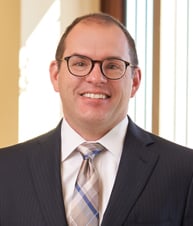UTTO Inc. v. Metrotech Corp., No. 2023-1435 (Fed. Cir. (N.D. Cal.) Oct. 18, 2024). Opinion by Taranto, joined by Prost and Hughes.
UTTO owns a patent directed to detecting and identifying underground utility lines, which the patent calls “buried assets.” UTTO sued Metrotech for both patent infringement and tortious interference with prospective economic advantage under California law. The district court construed the claim language “group of buried asset data points” and, applying the construction, dismissed the complaint’s patent infringement count under Rule 12(b)(6) for failure to plead infringement. The court also dismissed the state-law count because UTTO failed to plausibly plead a required element of the tort. UTTO appealed.
On appeal, UTTO argued that a district court may never engage in claim construction in deciding a motion to dismiss. The Federal Circuit disagreed: “We do not agree that claim construction is categorically forbidden at the Rule 12(b)(6) stage of a case.” But the court did agree with UTTO that additional analysis and proceedings were needed to arrive at a proper construction. Because “fuller claim-construction proceedings and analysis” were needed, the Federal Circuit vacated the dismissal of UTTO’s infringement claim and remanded.
As for the state-law count involving tortious interference, the Federal Circuit concluded “that UTTO’s brief assertions on appeal on this issue are insufficient to support disturbing the district court’s dismissal.” UTTO argued that Metrotech had unlawfully tied its software product to its hardware product and, on top, had fraudulently misrepresented the capabilities of its software. As to tying, the Federal Circuit ruled that UTTO “failed to allege that Metrotech has market power in the hardware market, i.e., the tying-product market.” As to the alleged fraud, the court ruled that “UTTO has not stated facts that spell out a plausible allegation.” Thus, the Federal Circuit upheld the district court’s dismissal of UTTO’s state-law claim.
